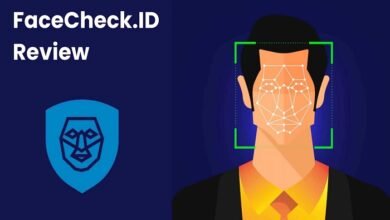Is Face Check ID Legal? A Comprehensive Analysis

The advent of facial recognition technology has brought significant advancements in security and convenience. However, the legality of Face Check ID systems has sparked considerable debate. This comprehensive analysis delves into the legal aspects of Face Check ID, examining its implications, regulatory frameworks, and privacy concerns. Understanding the legal landscape is crucial for businesses and individuals utilizing this technology.
What is Face Check ID?
Face Check ID is a facial recognition system used for identity verification. It captures and analyzes facial features to authenticate an individual’s identity. While it offers numerous benefits, including enhanced security and efficiency, its legality varies across different jurisdictions. Understanding the technology and its applications is the first step in exploring its legal status.
Legal Frameworks Governing Face Check ID
The legality of Face Check ID is governed by various legal frameworks, which differ by country and region. In the United States, for instance, the use of facial recognition technology is subject to federal, state, and local regulations. The European Union has stringent data protection laws under the General Data Protection Regulation (GDPR), which significantly impact the use of Face Check ID systems. These frameworks aim to balance technological advancements with privacy and security concerns.
Privacy Concerns Surrounding Face Check ID
One of the primary legal challenges facing Face Check ID technology is privacy. The collection, storage, and use of biometric data raise significant privacy concerns. Individuals may be unaware of when and how their data is being used, leading to potential misuse. Legal frameworks, such as the GDPR, address these concerns by requiring explicit consent and ensuring data protection measures are in place.
Regulatory Compliance for Face Check ID
Businesses and organizations using Face Check ID must comply with relevant regulations to avoid legal repercussions. This includes obtaining informed consent from individuals, implementing robust data protection measures, and ensuring transparency in data usage. Non-compliance can result in hefty fines and damage to reputation. Understanding and adhering to these regulations is essential for the lawful use of Face Check ID technology.
Case Studies on the Legality of Face Check ID
Several case studies highlight the legal complexities of Face Check ID technology. In the United States, the city of San Francisco banned the use of facial recognition technology by government agencies, citing privacy and civil liberties concerns. Conversely, countries like China have embraced the technology, integrating it into various aspects of public and private life. These case studies illustrate the diverse legal landscapes and the need for context-specific legal analysis.
Ethical Considerations of Face Check ID
Beyond legalities, ethical considerations play a crucial role in the deployment of Face Check ID systems. Issues such as bias, fairness, and accountability must be addressed to ensure ethical use. Biased algorithms can result in discriminatory practices, leading to legal challenges. Therefore, businesses must consider both legal and ethical implications when implementing Face Check ID technology.
Future Trends in Face Check ID Legality
The legal landscape for Face Check ID is continuously evolving. As technology advances, new regulations and standards are likely to emerge. Trends such as increased transparency, stronger data protection measures, and international cooperation on regulatory frameworks will shape the future legality of Face Check ID. Staying informed about these trends is vital for businesses to remain compliant and leverage the technology effectively.
Legal Risks and Mitigation Strategies
Using Face Check ID technology comes with inherent legal risks. These include potential data breaches, non-compliance with regulations, and infringement of individual privacy rights. To mitigate these risks, businesses should conduct regular audits, implement robust cybersecurity measures, and stay updated with legal developments. Proactive risk management can help ensure the lawful use of Face Check ID systems.
The Role of Public Perception in Face Check ID Legality
Public perception significantly influences the legal acceptance of Face Check ID technology. Concerns about privacy invasion and data misuse can lead to public backlash and stricter regulations. Engaging with the public, promoting transparency, and educating users about the benefits and safeguards of Face Check ID can help improve acceptance and reduce legal challenges.
Conclusion
The legality of Face Check ID is a complex and evolving issue, influenced by various legal, ethical, and societal factors. While the technology offers significant benefits, it also raises substantial privacy and regulatory concerns. Businesses and individuals must navigate this landscape carefully, ensuring compliance with relevant laws and addressing ethical considerations. Staying informed and proactive is crucial for leveraging Face Check ID technology while minimizing legal risks.
FAQ
1. Is Face Check ID legal in all countries?
No, the legality of Face Check ID varies by country and region, depending on local laws and regulations.
2. What are the primary legal concerns with Face Check ID?
The primary legal concerns include privacy issues, data protection, and obtaining informed consent from individuals.
3. How can businesses ensure compliance with Face Check ID regulations?
Businesses can ensure compliance by implementing robust data protection measures, obtaining explicit consent, and staying updated with relevant laws and regulations.
4. What role do ethical considerations play in the use of Face Check ID?
Ethical considerations, such as bias, fairness, and accountability, are crucial for the responsible and lawful use of Face Check ID technology.
5. What are the future trends in the legality of Face Check ID?
Future trends include increased transparency, stronger data protection measures, and international cooperation on regulatory frameworks governing Face Check ID technology.





